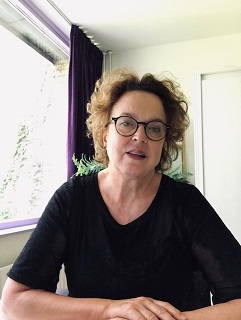Meet Alie Bijker, license manager

"As license manager, I organize and take care of the library’s digital collections. Users often think that online information is available for free, but a lot goes into making the necessary resources and databases available and a lot of money is involved."
The University of Groningen Library (UB) offers access to numerous digital resources, such as e-books, electronic journals, and databases. As license manager at the UB, Alie Bijker facilitates access to these resources.
What do you do as license manager at the UB?
As license manager, I take care of the library’s digital collections. Users often think that online information is available for free, but a lot of effort and money goes into making the necessary resources and databases available. The UG’s combined library budget is approximately €8 million. Of that, more than €7 million is for digital content. As a result, the UB has an enormous supply of digital journals, databases, and e-books.
What goes into making digital resources available?
Our team is responsible for the entire process, from selection and purchase to making e-resources available. We often negotiate with publishers in terms of agreements, but also about access, functionality, and user experience. Licenses are negotiated both nationally for the Dutch universities and UMCs collectively (UKB consortium), but also bilaterally and tailored to the UG.
How does the selection of digital resources work?
We work closely with the academic information specialists at the UB, who sound out the faculties regarding their need for digital resources. If there is a serious interest in a new resource, we arrange a trial. Researchers who have proposed a new resource provide feedback on the trial. We also inform other interested parties. If it meets their needs, we try to negotiate as competitive an offer as possible. In addition, staff and students can make an acquisition suggestion.
What role does open access play in license management?
Open access is becoming increasingly important to us, and we are working very closely with the UB’s open access team. Contrary to what many people think, open access publishing is not free of charge. The costs are negotiated and bought if possible off so that researchers can publish open access in as many journals as possible, without additional costs.
As a result, licenses for the national, large journal packages, the ‘read and publish deals’ which we renegotiate with the UKB consortium every few years, have become much more complex in recent years. In the agreements with the major publishers, such as Elsevier, Springer, Wiley, and Taylor & Francis, it is negotiated that authors from all Dutch universities may publish open access free of charge in their journals.
Increasingly, a maximum number of publications is agreed upon that can be published open access free of charge. Because more and more open access publications are being published, which is of course great, we are reaching this annual quota ever earlier. We are currently seeing this happen in our deals with Springer and Emerald.
What are you noticing about the movement towards more online teaching?
Since the coronavirus pandemic, we have seen the number of requests for access to digital content increase, and the supply is also becoming larger and more diverse. Online teaching has also led to hefty price increases and more restrictive licensing models among publishers, especially in the area of compulsory literature.
E-books are now increasingly offered in a form where they are only available temporarily, for a limited group, and at very high prices. As a result, lecturers may not be able to use their own e-book in their lectures. To prevent this and to improve access to e-books, we ask UG authors to specifically ask their publisher about their e-book policy when negotiating their book contract.
More information
UB e-resources list & e-journal browser
Open access journal browser
Acquisition suggestion
Contact
liblicenses rug.nl
| Last modified: | 17 November 2023 1.52 p.m. |
More news
-
21 May 2024
Results of 2024 University elections
The votes have been counted and the results of the University elections are in!
-
13 May 2024
Trapping molecules
In his laboratory, physicist Steven Hoekstra is building an experimental set-up made of two parts: one that produces barium fluoride molecules, and a second part that traps the molecules and brings them to an almost complete standstill so they can...

